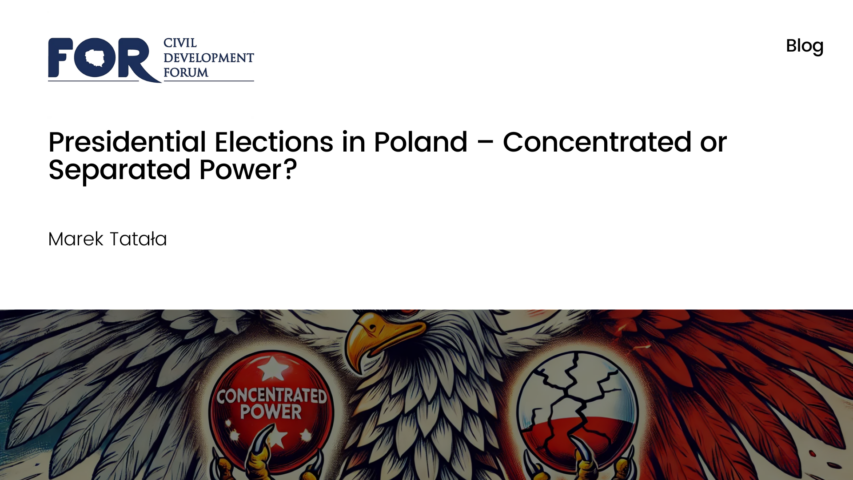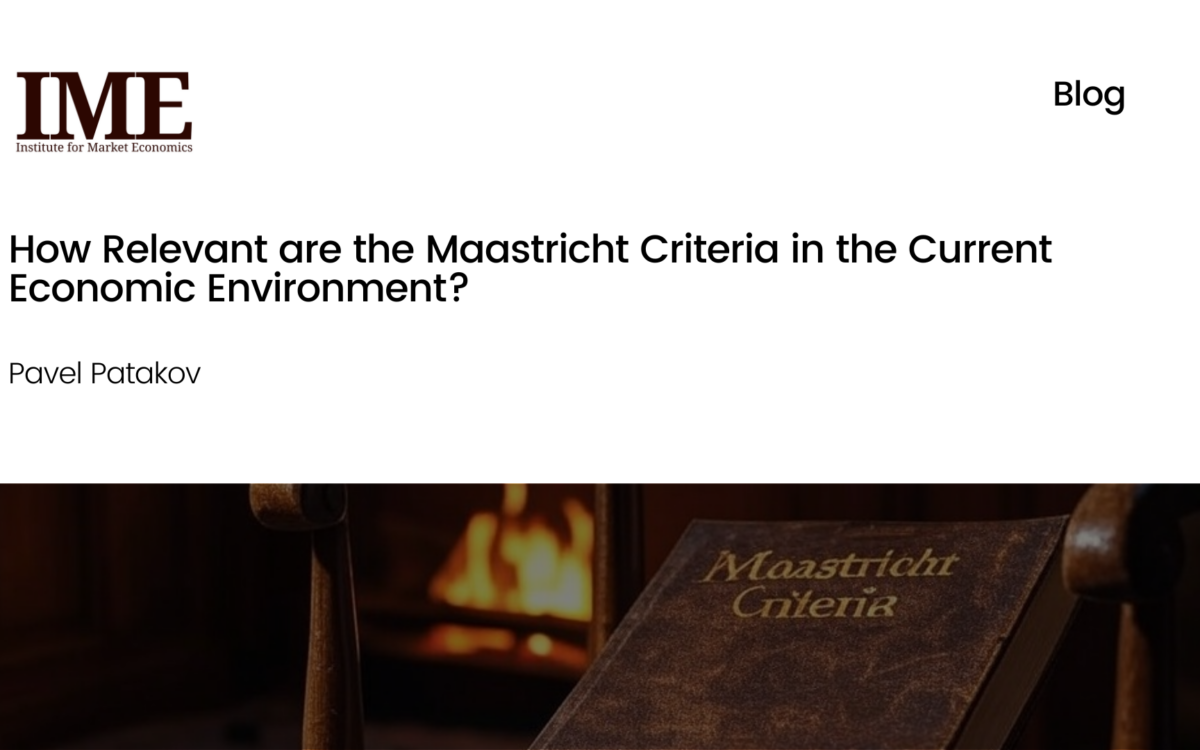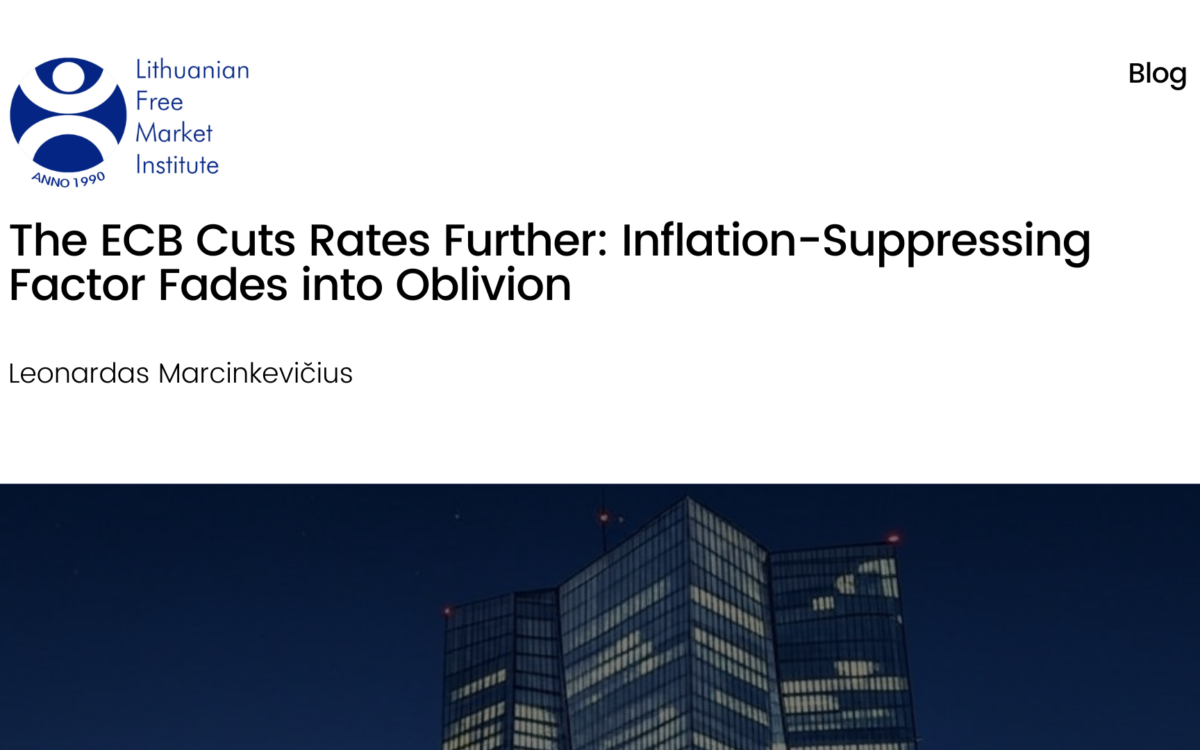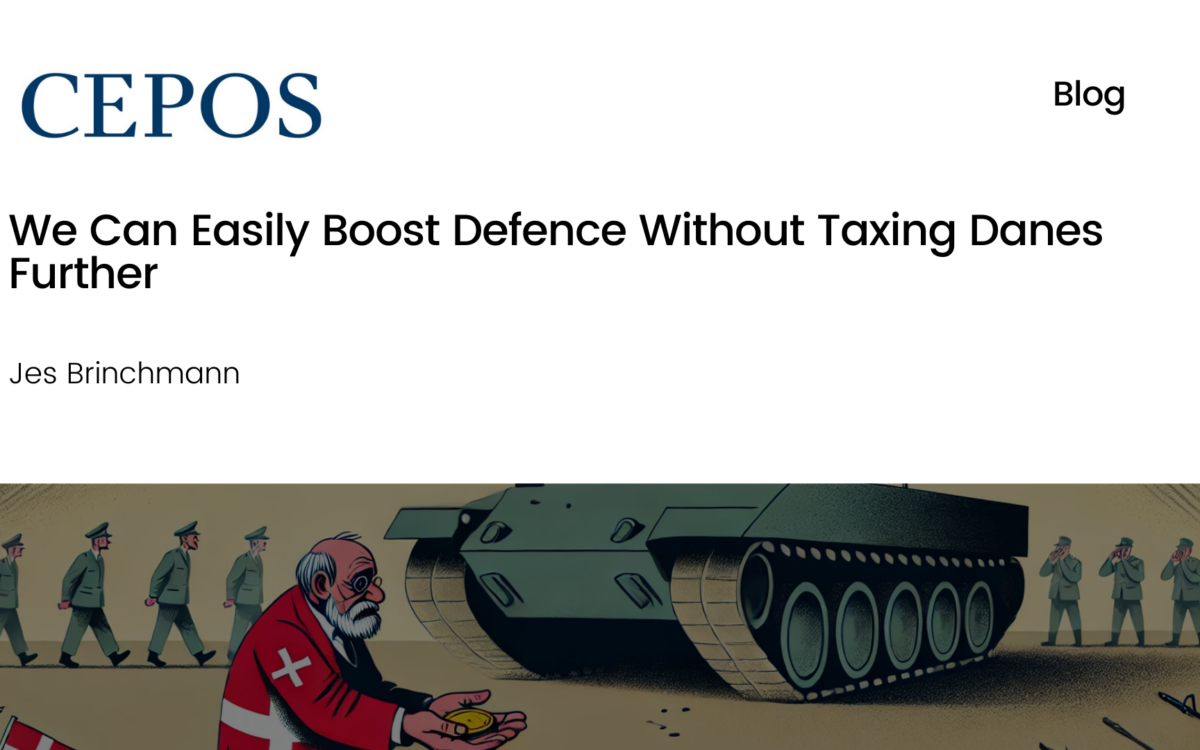Presidential Elections in Poland – Concentrated or Separated Power?

Presidential Elections in Poland – Concentrated or Separated Power?
Marek Tatala // 10 July 2020
Incumbent President Andrzej Duda or Mayor of Warsaw Rafał Trzaskowski? That is the choice facing Polish voters on 12 June, in the second round of the presidential elections. In the first round Duda, a candidate of the ruling Law and Justice party, received 43,5% while Trzaskowski, from the main opposition party Civic Platform, attracted 30,5% of the vote. This gap seems large, but the final result will depend on the votes of those who supported other candidates in the first round, and of new voters who will be mobilised to participate in the second round only. The trends based on various opinion polls show that difference between both candidates is very narrow. Even the exit poll that will be presented on Sunday evening may not indicate a clear winner so we will have to wait until the final results are announced.
While there are many differences between Duda and Trzaskowski and their visions for Poland, the key question is whether power will still be concentrated in the hands of Jaroslaw Kaczynski, the head of Law and Justice, who, inspired by Viktor Orban, would like to continue his plan of “Budapest in Warsaw” – or whether power will be more dispersed and divided between various political groups. The latter would require cooperation, and it could prevent measures like the further dismantling of the rule of law or the capture of private media by the rulers.
The President of Poland is not as powerful as in the US but stronger than in Germany. Firstly, direct elections give a strong legitimacy as they require more than 50% of votes. Secondly, one of the most important powers of the President is that they can veto almost any legislative act. To overrule the presidential veto, a three-fifth majority is required in the lower house of the parliament (Sejm). While the President can also initiate the legislative process, that power is rather limited in practice without having a parliamentary majority. Therefore, if Rafal Trzaskowski wins elections it is more important which policies can be blocked by him than what he can propose. The next parliamentary elections are scheduled for 2023.
Andrzej Duda unexpectedly won presidential elections in Poland in 2015. It was the beginning of a series of political successes of the Law and Justice party led by Jaroslaw Kaczynski. In the past, Duda worked in the presidential office of President Lech Kaczynski, Jaroslaw Kaczynski’s twin brother, and then was elected first to the Polish Parliament and then to the European Parliament where he joined the European Conservatives and Reformists group. He has been promising continuation of the ruling party’s policies, including populist and unsustainable welfare state expansions and economic nationalism. He is skeptical towards the EU and against joining the Eurozone. Duda has been supporting various violations of the rule of law including removal of the Supreme Court judges. Moreover, one of his leading topics during the campaign has been attacks on LGBT.
Rafal Trzaskowski won local elections in Warsaw in the first round in 2018 and became Mayor of the capital of Poland. In the past he was elected to the European Parliament, where he was a member of the European People’s Party group, and to the Polish Parliament. He also held various ministerial positions in the government. He is a member and presidential candidate of the Civic Platform supported by some minor parties like the liberal Nowoczesna (ALDE group) and the Greens. On the one hand he has been promising to keep many social programs introduced by the Law and Justice and sometimes even competing with Duda on further expansion of public expenditures and lower income taxes – an unsustainable mixture. On the other hand, Trzaskowski has been defending the rule of law and opposing populist attacks on independent institutions. He is pro-EU and would like to strengthen Poland’s position in Brussels. He is liberal on issues like LGBT and participated in these communities’ pride parades.
To win presidential elections in Poland, a candidate has to attract an absolute majority. So the key question is how supporters of those who did not make it to the second round will behave? Third place with 13,9% was taken by Szymon Holownia, journalist, publicist, and television personality, who in the past hosted the Polish equivalent of the Britain’s Got Talent show. In his campaign he emphasized topics like democratic institutions, the rule of law, political pluralism, and a green transition. Krzysztof Bosak, a member of parliament from the far-right Confederation won 6,8%. He was promising to veto all tax increases, defend sovereignty against the EU, emphasising traditional values and promoting a nationalistic and illiberal vision of Poland. The rest of the candidates received less than 3% of votes including a representative of the left and Member of the European Parliament from the Socialist and Democrats group Robert Biedron. What is interesting is that Trzaskowski, Bosak and Holownia attracted almost 70% of voters between the ages of 18 and 29.
Holownia has already expressed his personal support for Trzaskowski and announced that he will form a new political movement. Many of Holownia’s voters are critical towards mainstream political parties in Poland but it seems that majority of them is closer to Trzaskowski who is in favor of the rule of law, pluralism or a green transition. Bosak and other politicians from the Confederation decline to support any of the candidates who are now trying to attract more free market-oriented voters of Bosak by opposing higher taxes. Nevertheless, Trzaskowski seems more credible in his declaration to veto legal acts increasing the tax burden as he has no interest in supporting the ruling party in expanding the budget. More nationalistic and conservative voters of Bosak may tend to support Duda. Both candidates are also now attracting and mobilising new voters who will only participate in the second round.
What does the upcoming elections mean for individual liberties? As Lord Acton once said “power tends to corrupt and absolute power corrupts absolutely”. A defeat of Andrzej Duda means less power for Jaroslaw Kaczynski, leader of the Law and Justice and de facto head of the state. Rafal Trzaskowski would definitely use his veto to block further violations of the rule of law. He is also more likely to block any potential tax increases or the ruling party’s attempts to weaken pluralism by taking political control over private media as happened in Hungary. While many of economic promises of Trzaskowski may seem illiberal, Duda is similar or worse and in contrast to Trzaskowski he might be able to implement them in cooperation with the ruling majority. The rule of law and various liberties have been under attack for the last five years and the best defense at the moment is more separation of power guaranteed by the opposition candidate. Andrzej Duda’s second term means continuation of the “Budapest in Warsaw” plan and competition with Viktor Orban in who will build the most illiberal regime in the European Union. I hope Poland will keep losing in this disastrous contest.
Marek Tatala is the Vice President of Civil Development Forum (FOR), a leading Polish think tank and member of EPICENTER.
EPICENTER publications and contributions from our member think tanks are designed to promote the discussion of economic issues and the role of markets in solving economic and social problems. As with all EPICENTER publications, the views expressed here are those of the author and not EPICENTER or its member think tanks (which have no corporate view).




